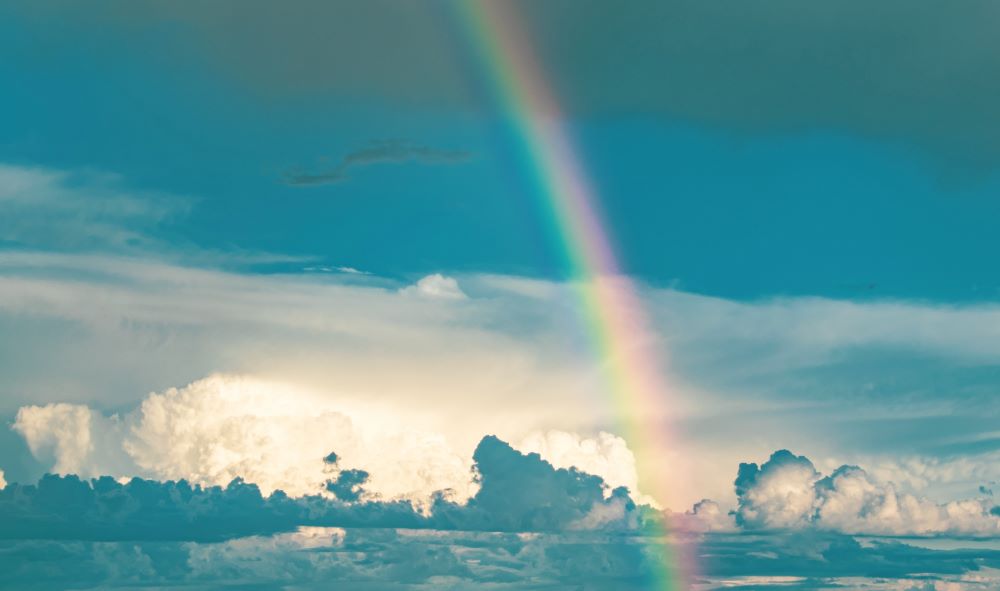
(Unsplash/Mateus Campos Felipe)
"OK, bye. Take care. See you soon!" All short and simple phrases, yet, those two words — "take care" — have become part and parcel of our common vocabulary. The words "take care" play an important role for every person, village, state, nation and country.
Care is important. Without it one can expect a disaster, failure — even death. Yes, these two words have implications for all creatures and creation. All that is created under the sun, be it human beings, trees, environment, animals, water, air or any other things, need care. But today, I wish to reflect on human beings. Even so, the life of human beings is incomplete without trees, environment, water, air; all these factors contribute to human well-being and we cannot survive without them.
The phrase "Take care" is spontaneous and casually said to someone expressing emotions of love to us, but it isn't easy for us to say it to those we don't like! It is also used as a semi-formal salutation at the end of any event.
The phrase has become well-used in today's society and in families, and it has been destroyed due to vested interests. The word "care" has been replaced with "me, me and me."
In this crumbling economy and today's world, fraught with denials and lies, greed seems to have become eternal. Human beings are frantically looking for ways to become No. 1 on the Forbes list of the richest people, while the world is sick and ailing with manmade disasters. The latest earthquakes in Turkey and Syria are yet another reminder for the world — especially for those who have turned it into concrete jungles — to care for what is in our care. For the Word of God tells us that God put humans in the Garden of Eden to till it and take care of it (Genesis 1).
In Genesis 9: 8-17 God promised Noah that he would never again destroy the earth with the flood. This was a commitment God made with Noah to maintain his relationship with the Creator and the creation. It was signed with the sign of a rainbow – His signature!
But then, why do we still have natural disasters or see destruction of the earth in other ways? That to me is the million-dollar question.
The answer is as simple as ever, spelled out with an addition of one word to the phrase where God says "take care of it": It is not taken care of!
In any situation, all of us are called to do our part in taking care of our common home in simple ways. For example, we should be accountable for the waste we throw out and make all that we do sustainable. But we see the impact of people like the farmer in the golden goose story. The farmer killed his golden goose, which had been giving him one golden egg a day, in hopes that he would find many golden eggs inside the goose and become richer than his village banker.
As I reflected on the phrase "take care," I remembered a story I read some time ago that gave a heart-rending message about our primary responsibility toward our beloved parents or family members. It really moved my heart.
In the story, a son took his father out to eat. His father, old and weak, dropped food on himself. Diners looked on with disgust. After the meal, the son took his dad to the restroom and helped him clean up. As they left the restaurant, an old man noted that the son had modeled a message about caring for others, saying: "You left a lesson for every son and hope for every father."
Sure enough, we leave footprints behind, for every act noticed or unnoticed, wherever we go, in whatever we do and whatever we say. Even a word or two can make or break, one act can build or destroy. It all depends on me. As St. Paul wrote in 2 Tim 1:13-14, carefully guard our rich trust — His very own self — through the Holy Spirit, which in return will enable us to take care of creatures and creation.
Let us take care of our heart, mind, body and soul. It's only when I love myself wholeheartedly, when I take care of myself, that I can reach out in love and take care of others — whether things, people or creation.
Because care is the greatest treasure we can give to one another.
Advertisement







